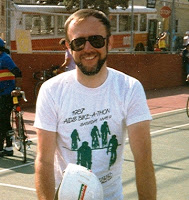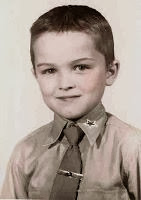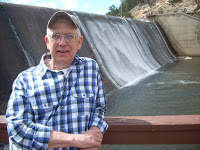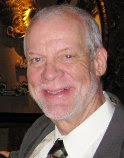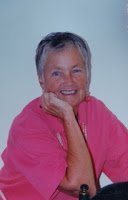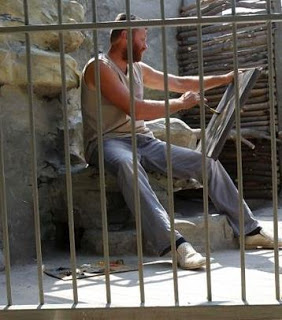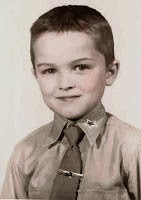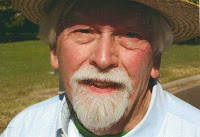Although for me swimming might be “staying alive in the water”, flying does not mean to me “staying alive in the air”. It’s more like “staying sane while traveling”. Between spending two hours in the airport before the scheduled departure time–after circling the parking lot for fifteen minutes looking for an empty space; trying to fit everything needed for the trip into a single checked bag; anxiously waiting in long lines when not rushing to your next destination; fruitlessly searching for space for my toilet kit in the overhead stowage compartment; not knowing whether my connecting flight actually has an airplane waiting for me at the next stop; trying to fit my 95th- percentile-long legs between the seat cushion, fold-down tray which no longer holds a single thing that I don’t have to pay for, and whatever might be under my seat; being unable to get comfortable in a seat that I cannot recline far enough; putting up with whatever the passenger next to me is doing; and needing to have instant access to the loo which does not allow me to turn around unless I raise my hands over my head (in which case, I have no control over the directionality of my by-now-headlong-rushing stream), well, it just isn’t worth the time saved.
Furthermore, to me travel is more than a trip from Point ‘A’ to Point ‘B’. That’s for business people. I want to know the landscape between Point ‘A’ and Point ‘B’. The only way to do that is by automobile. Furthermore, I know that, when I reach my destination via air, I will have to deal with rental cars–the only enterprise with a business model worse than that of airlines. Either way, there will be relatives who will want me to sleep with their non-hypoallergenic cat, expect me to sleep on THEIR schedule, and leave me alone during the day while they traipse off to work. With no wheels, what am I supposed to do–paint the bathrooms?
No, while I’m driving across country in my very comfortable automobile, I have the pleasure of munching on my Pay Days, drinking my pink lemonade, listening to Sirius XM radio, conversing with my travel companion, and taking in the scenic countryside. (One of my travel secrets is finding off-the-beaten-path routes that encompass rolling hills, gentle curves, lakes, and streams.) My only regret is that I have not found a way to read a road map safely–I LOVE maps–while driving. As anyone who flies will understand, finding a competent co-pilot is not easy.
30 September 2013
About the Author
I came to the beautiful state of Colorado out of my native Kansas by way of Michigan, the state where I married and I came to the beautiful state of Colorado out of my native Kansas by way of Michigan, the state where I married and had two children while working as an engineer for the Ford Motor Company. I was married to a wonderful woman for 26 happy years and suddenly realized that life was passing me by. I figured that I should make a change, as our offspring were basically on their own and I wasn’t getting any younger. Luckily, a very attractive and personable man just happened to be crossing my path at that time, so the change-over was both fortuitous and smooth. Soon after, I retired and we moved to Denver, my husband’s home town. He passed away after 13 blissful years together in October of 2012. I am left to find a new path to fulfillment. One possibility is through writing. Thank goodness, the SAGE Creative Writing Group was there to light the way.

